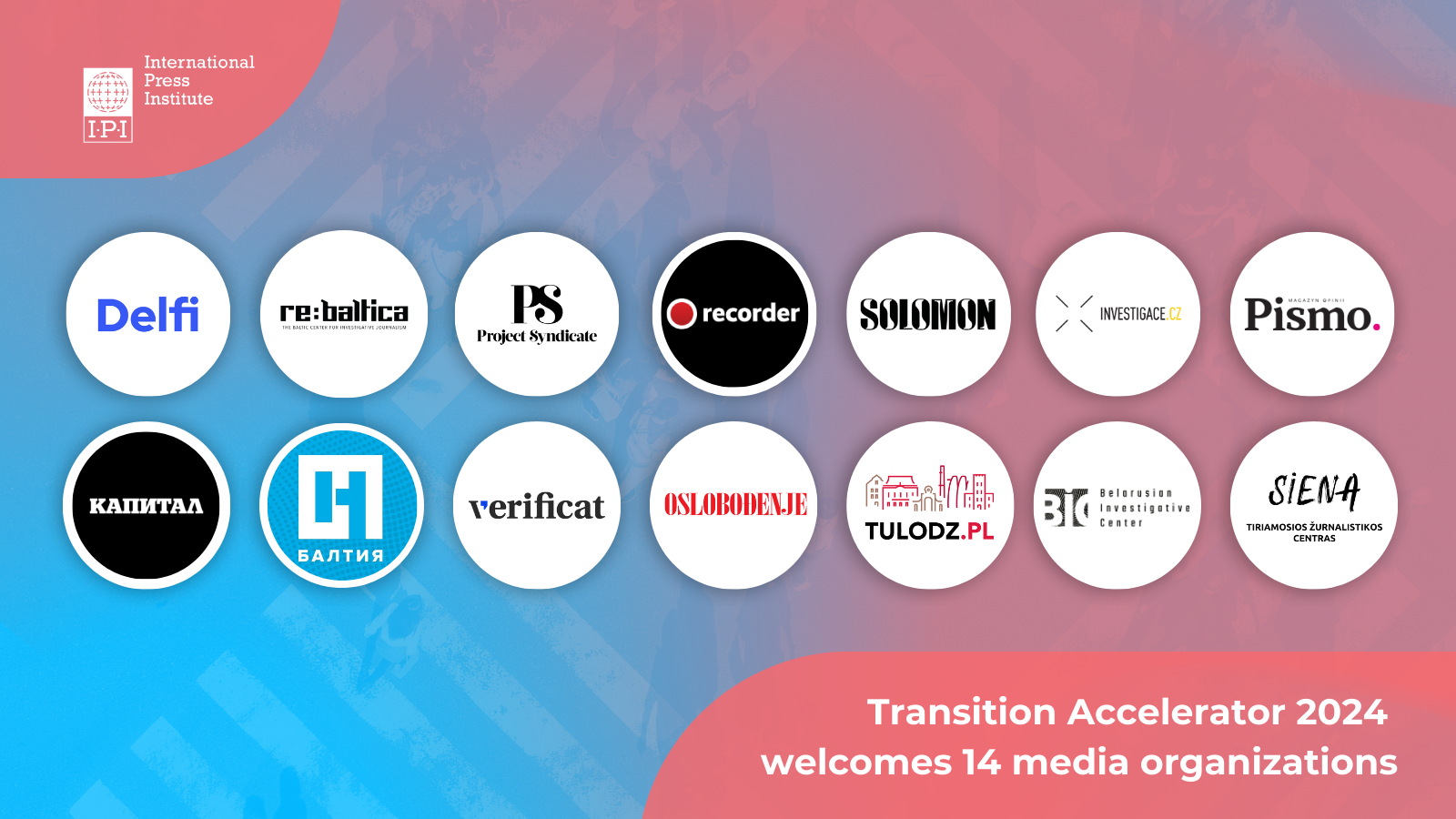[fusion_text]This text comes from IPI’s newsletter The Outlook. Sign up to receive future editions directly to your inbox.[/fusion_text][separator style_type=”none” top_margin=”” bottom_margin=”” sep_color=”” border_size=”” icon=”” icon_circle=”” icon_circle_color=”” width=”” alignment=”” class=”” id=””][fusion_text]📮In this week’s newsletter, we bring you the main learnings from the Virtual Newsroom Visit to Scrolla.Africa that took place on October 17. Scrolla is an independent African platform with the mission of producing high-integrity popular news and reinventing the best of tabloid news for the growing audiences in Africa.
At the Newsroom Visit, we heard from Scrolla’s amazing team: Mungo Soggot (CEO), Everson Luhanga (Editor at Large) Sbongile Nonyana (Reporter and Translator) and Dylan Bettencourt (News Editor)[/fusion_text][youtube id=”https://youtu.be/7KdoBdiSgYY?si=JMoPPG0PH5AJbM1N&t=1″ width=”650″ height=”400″ autoplay=”no” api_params=”” class=””][/youtube][one_full last=”yes” spacing=”yes” center_content=”no” hide_on_mobile=”no” background_color=”” background_image=”” background_repeat=”no-repeat” background_position=”left top” hover_type=”none” link=”” border_position=”all” border_size=”0px” border_color=”” border_style=”” padding=”” margin_top=”” margin_bottom=”” animation_type=”” animation_direction=”” animation_speed=”0.1″ animation_offset=”” class=”” id=””][/one_full]📺 Watch the Recording[separator style_type=”none” top_margin=”” bottom_margin=”” sep_color=”” border_size=”” icon=”” icon_circle=”” icon_circle_color=”” width=”” alignment=”” class=”” id=””][fusion_text][fusion_text]
The challenge: using AI for good (journalism)
From early on, tech solutions were at the center of Scrolla’s distribution model. In 2021, Scrolla won a Google News Innovation award for its Data Lite site, which uses less than a 10th of the data of normal sites, expanding its audience and reach. Embracing low-data mobile technology allowed Scrolla to expand in South Africa and across the continent, reaching and engaging audiences with limited internet access.
When it came to AI, the team was quick to explore its potential, while working out how to safeguard the quality of their reporting, address the scepticism and facilitate the learning and creativity of the team. Find out a few main learnings from our session 👇[/fusion_text][separator style_type=”none” top_margin=”” bottom_margin=”” sep_color=”” border_size=”” icon=”” icon_circle=”” icon_circle_color=”” width=”” alignment=”” class=”” id=””][fusion_text][fusion_text]
The solution: find your unique AI Sandwich recipe
Over the last 18 months, Scrolla embraced this challenge of using AI for good journalism through training, experimenting and refining their guidelines for AI tools. Today the team uses AI in translation, proofreading, editing, audio production and image generation. What came out of this is their own evolving recipe for Scrolla’s AI Sandwich.
What is the AI Sandwich? – In the context of journalism, think of it as a structure where human oversight is “the bread” covering the top and the bottom of the content production process, while “the cheese” is the AI LLM.[/fusion_text][one_half last=”no” spacing=”yes” center_content=”no” hide_on_mobile=”no” background_color=”” background_image=”” background_repeat=”no-repeat” background_position=”left top” hover_type=”none” link=”” border_position=”all” border_size=”0px” border_color=”” border_style=”” padding=”” margin_top=”” margin_bottom=”” animation_type=”” animation_direction=”” animation_speed=”0.1″ animation_offset=”” class=”” id=””][imageframe lightbox=”no” lightbox_image=”” style_type=”none” hover_type=”none” bordercolor=”” bordersize=”0px” borderradius=”0″ stylecolor=”” align=”none” link=”” linktarget=”_self” animation_type=”0″ animation_direction=”down” animation_speed=”0.1″ animation_offset=”” hide_on_mobile=”no” class=”” id=””]  [/imageframe][/one_half][one_half last=”yes” spacing=”yes” center_content=”no” hide_on_mobile=”no” background_color=”” background_image=”” background_repeat=”no-repeat” background_position=”left top” hover_type=”none” link=”” border_position=”all” border_size=”0px” border_color=”” border_style=”” padding=”” margin_top=”” margin_bottom=”” animation_type=”” animation_direction=”” animation_speed=”0.1″ animation_offset=”” class=”” id=””][fusion_text]As Scrolla’s News Editor, Dylan Bettencourt explains “A journalist starts the process, they gather the material they are on the ground, and the machine cleans that up, and then the bottom piece of bread is the human wrapping it up.”[/fusion_text][/one_half][fusion_text]This concept fits well into Scrolla’s mission. Mungo Soggot, Scrolla’s CEO explains – “We aim to wrap the news that matters in the news that sells… These tools have allowed us to process content more efficiently, and in particular, the lighter fare, which doesn’t need as much intellectual legwork to get it ready for publication”, which meant more resources and time to produce bigger investigative stories “that matter“.
[/imageframe][/one_half][one_half last=”yes” spacing=”yes” center_content=”no” hide_on_mobile=”no” background_color=”” background_image=”” background_repeat=”no-repeat” background_position=”left top” hover_type=”none” link=”” border_position=”all” border_size=”0px” border_color=”” border_style=”” padding=”” margin_top=”” margin_bottom=”” animation_type=”” animation_direction=”” animation_speed=”0.1″ animation_offset=”” class=”” id=””][fusion_text]As Scrolla’s News Editor, Dylan Bettencourt explains “A journalist starts the process, they gather the material they are on the ground, and the machine cleans that up, and then the bottom piece of bread is the human wrapping it up.”[/fusion_text][/one_half][fusion_text]This concept fits well into Scrolla’s mission. Mungo Soggot, Scrolla’s CEO explains – “We aim to wrap the news that matters in the news that sells… These tools have allowed us to process content more efficiently, and in particular, the lighter fare, which doesn’t need as much intellectual legwork to get it ready for publication”, which meant more resources and time to produce bigger investigative stories “that matter“.
Getting to that point required getting everyone on board and prepared for the new tools. Scrolla took a few concrete steps to make the process smooth:
- Updating editorial checklists: designed to maintain thorough editing, the checklists introduced AI-related guidelines. These help editors double-check AI-processed / generated content, ensuring accuracy, voice and tone.
- Designing custom GPTs: the team has developed their own GPTs tailored to their specific needs and the kinds of stories they produce.
- Training editors on GPT interaction: editors are trained to effectively engage with the custom GPTs, refine their performance, and adopt a conversational approach for the best results. Everyone is encouraged to ask follow-up questions to further optimize the AI’s output.
- Addressing scepticism and fears: From the start development of AI brought legitimate fears about the job security of media workers. In Scrolla’s experience, the team shares a few positive spins on that risk.
👉 Everson Luhanga, Scrolla’s Editor at Large shares that using the AI tools made his job easier and more impactful -“…it has been a life-changing experience in the newsroom, especially when we strive to break important and big news before big social media accounts publish them.” While for Sbongile Nonyana, a reporter and translator, AI made her translation job (almost) obsolete, however, opened a new opportunity for her to be rehired as a reporter at Scrolla.[/fusion_text][separator style_type=”none” top_margin=”” bottom_margin=”” sep_color=”” border_size=”” icon=”” icon_circle=”” icon_circle_color=”” width=”” alignment=”” class=”” id=””][fusion_text]
Next Step Forward
🚀Transition Accelerator 2024 onboards 14 Newsrooms across Europe

The 2024 edition of the Transition Accelerator kicked off on October 7, bringing together 14 media organizations eager to revolutionize their digital and revenue strategies. Over 8 months, participants will engage in a comprehensive programme offering grants, training and personalized advisory support to ensure the successful implementation of their digital transformation and revenue generation projects.
In the accelerator, the teams will be experimenting with and investing in (1) first-party data strategies; (2) integration of AI tools; (3) productizing archives; (4) increasing audience segments for audio; (5) development of revenue streams, like paid newsletters and premium subscriptions in B2B and B2C markets; (6) automating processes, (7) synchronizing analytics on user behaviour, and much more!
>> Learn more about the participants
[/fusion_text][separator style_type=”none” top_margin=”” bottom_margin=”” sep_color=”” border_size=”” icon=”” icon_circle=”” icon_circle_color=”” width=”” alignment=”” class=”” id=””][fusion_text]
Innovation Deck
[/fusion_text][fusion_text]
Other opportunities:
| Pluralistic Media for Democracy | NPA’s News Product Management Certification |
|---|---|
| 📍Europe
Join an introductory webinar: November 6, 2024 |
📍Global
Apply by: December 2, 2024 |
Share your thoughts, reach out to the Media Innovation team and help us shape our media support programmes! Say hi – [email protected].

[/fusion_text]
